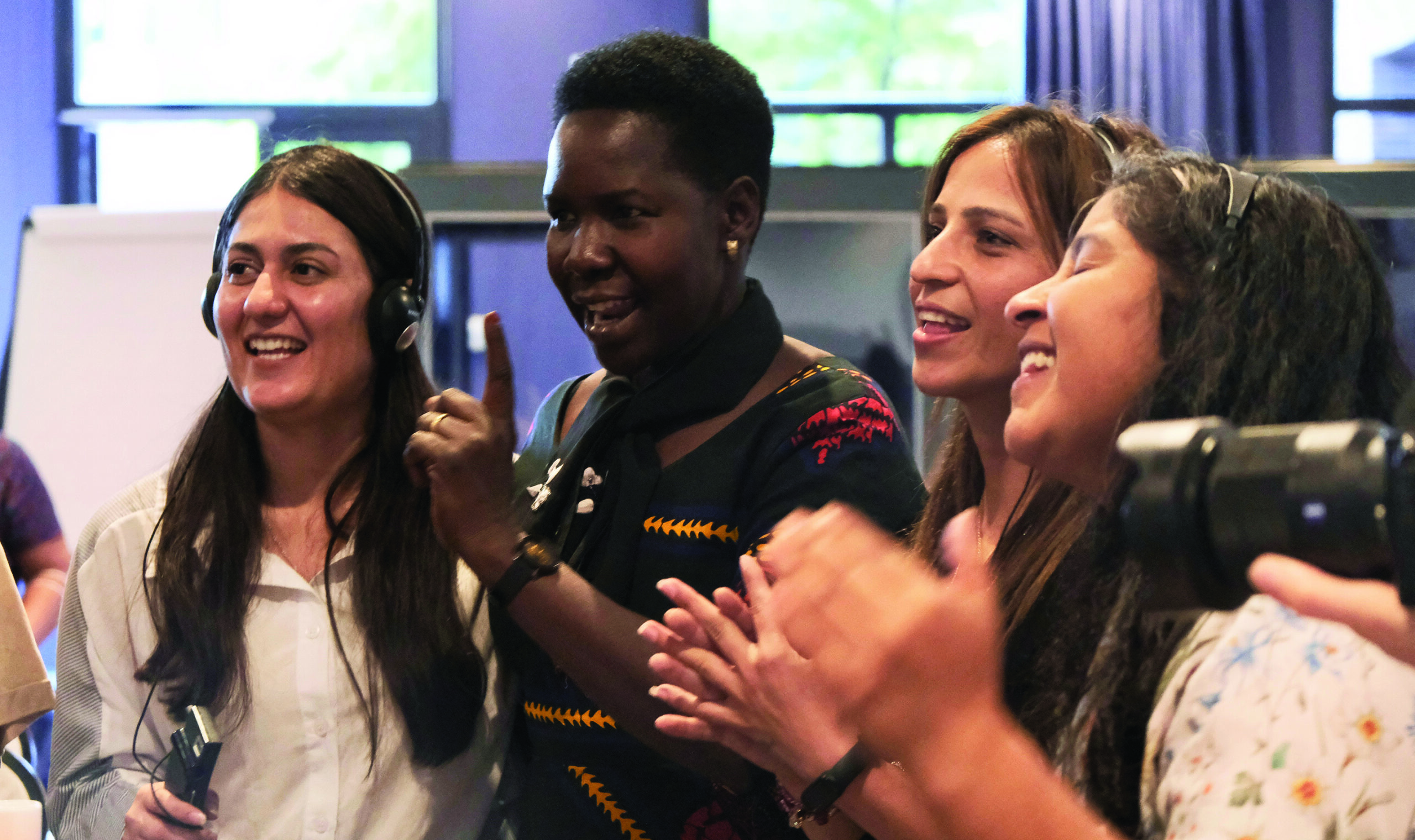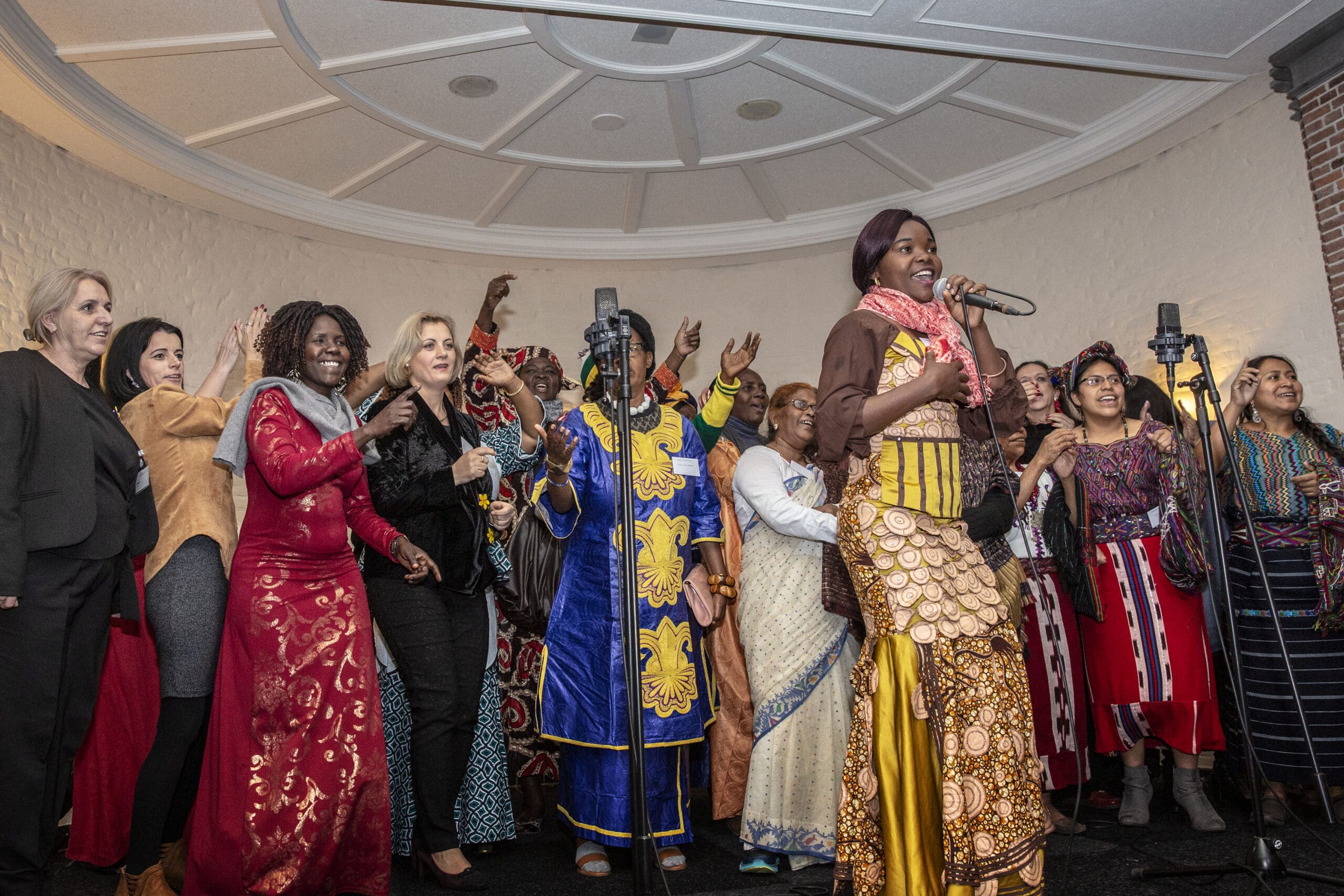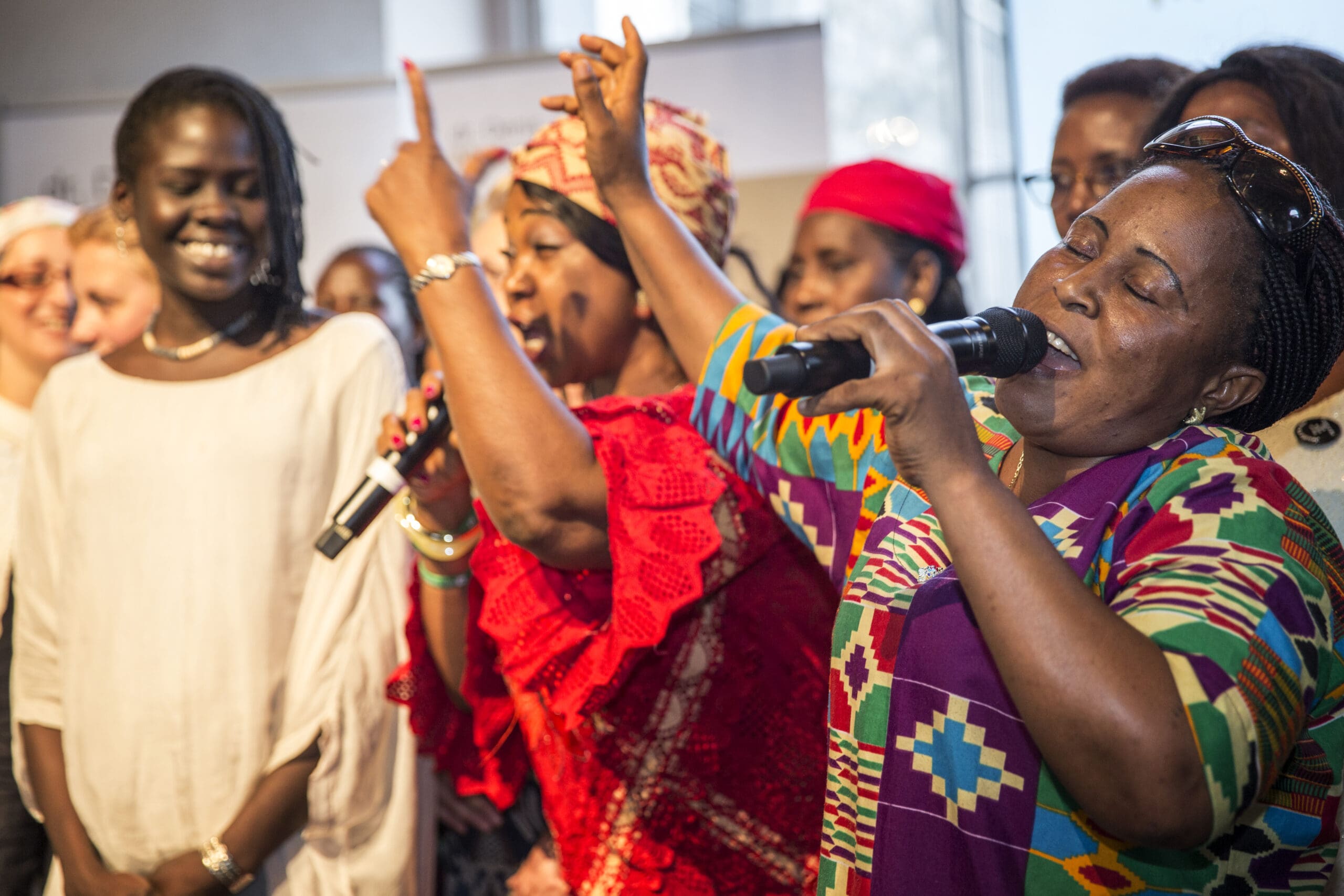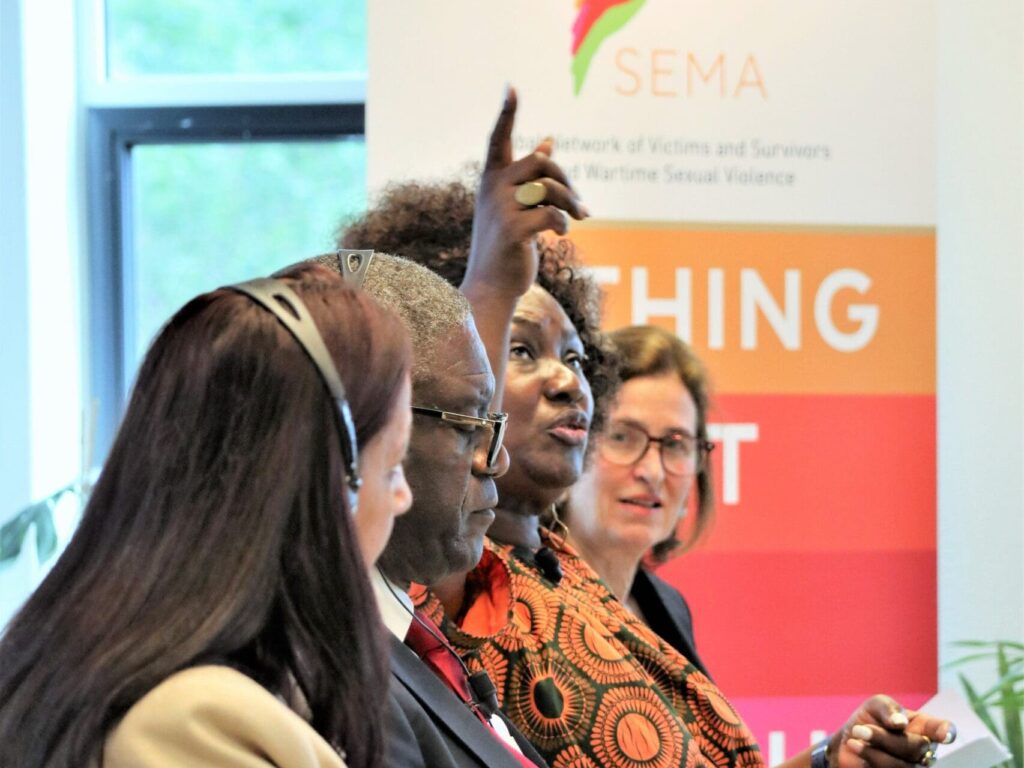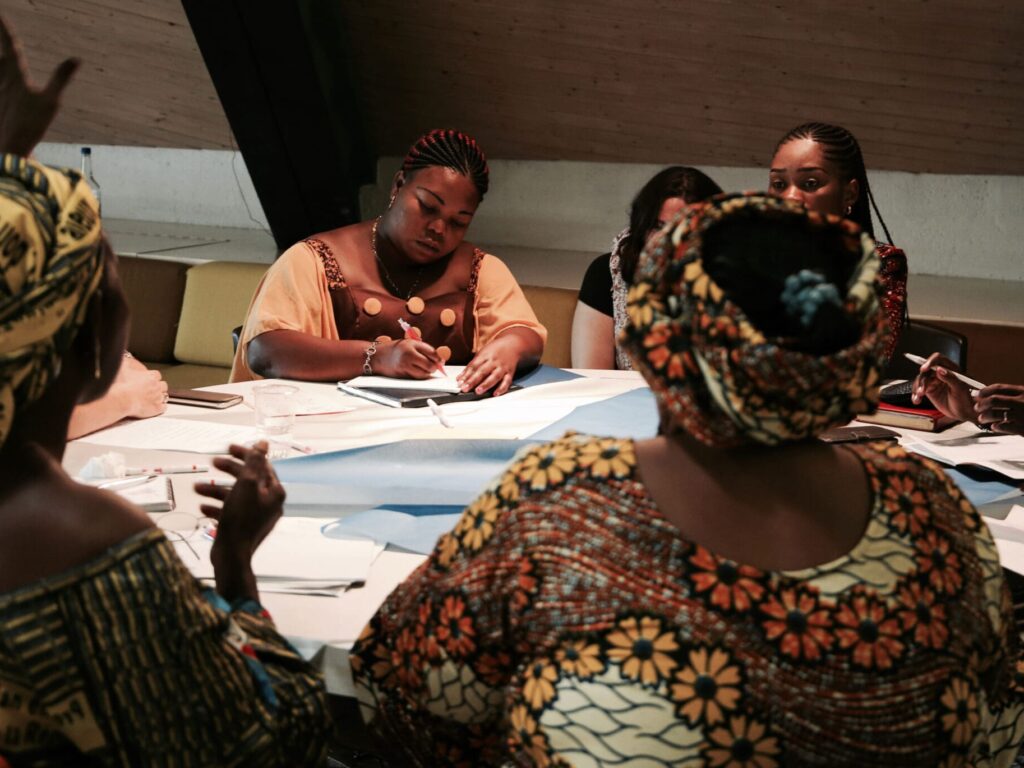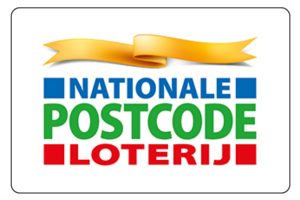The challenge
Not only do survivors of conflict-related sexual violence face a cascade of life-changing physical, psychological, social and economic consequences, they live with the burden of being shunned and silenced by their communities.
Stigma can have lasting, potentially lethal consequences – from ‘honour killings’ and suicide, to destitution and high-risk survival behaviours. Stigmatisation prevents survivors from seeking help, excludes them from their communities, and often leaves them to care for themselves and their children without any support.
Silence can be the best protection that survivors have against stigma, but it comes at a high cost. It means that the suffering and the devastating consequences of these crimes remain hidden and unaddressed. It is crucial that the silence around sexual violence as a weapon of war is broken.
Our response
We recognise that coming forward and breaking the silence is often an insurmountable task that survivors cannot achieve alone.
Survivor-led networks provide a safe place to share the experiences that have been hidden and ignored for too long, and where survivors can organise together to create change. By connecting with others who understand their experiences, survivors can find new strength, break the silence, and claim their rights.
We connect survivors globally through SEMA — the Global Network of Victims and Survivors to End Wartime Sexual Violence – and through national survivor networks.
These connections bring survivors from different generations, continents, and cultures together to learn from each other. Organised, global advocacy amplifies the voices of grassroots survivor activists, bringing their perspectives to influence decisions and policies which impact their lives.
Our goal is to support networks led by and for survivors. We support survivor-led initiatives because we believe that agency empowers survivors and their communities, allowing them to take decisions, express themselves, and shape their own lives according to their values, aspirations, and priorities.

